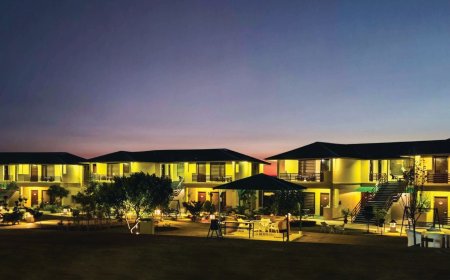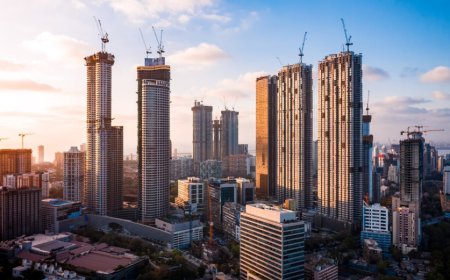Top 10 Independent Cinemas in Washington
Introduction Washington State is home to a vibrant, deeply rooted independent cinema scene that thrives beyond the glare of mainstream multiplexes. These are not just theaters—they are cultural sanctuaries, community hubs, and guardians of cinematic art. From historic venues tucked into Seattle’s alleyways to rustic screening rooms in the Cascade foothills, independent cinemas in Washington offer
Introduction
Washington State is home to a vibrant, deeply rooted independent cinema scene that thrives beyond the glare of mainstream multiplexes. These are not just theaters—they are cultural sanctuaries, community hubs, and guardians of cinematic art. From historic venues tucked into Seattle’s alleyways to rustic screening rooms in the Cascade foothills, independent cinemas in Washington offer more than just a seat and a screen. They offer connection—to filmmakers, to stories, and to each other. But in an era where corporate chains dominate the landscape, choosing where to watch a film isn’t just about convenience. It’s about trust. Trust in the curation. Trust in the integrity of the experience. Trust that the people behind the ticket counter care more about the film than the profit margin. This guide highlights the top 10 independent cinemas in Washington you can trust—venues that have earned their reputation through consistent quality, authentic programming, and unwavering commitment to the art of cinema.
Why Trust Matters
When you walk into a theater, you’re not just buying a ticket—you’re investing in an experience. In a world saturated with algorithm-driven recommendations and corporate branding, independent cinemas stand apart by prioritizing artistic merit over box office metrics. Trust is earned when a theater consistently screens films that challenge, provoke, and move audiences—not just those with the biggest marketing budgets. It’s earned when staff can passionately discuss the director’s previous work, when the lobby displays local art, when the popcorn is served in compostable containers, and when the lights dim without a single commercial preceding the feature. Trust is built over time, through transparency, consistency, and a refusal to compromise. In Washington, where audiences are discerning and communities are tight-knit, independent cinemas that survive and thrive are those that earn that trust daily. They don’t chase trends; they set them. They don’t just show movies—they create conversations. And in doing so, they preserve the soul of cinema.
Top 10 Independent Cinemas in Washington
1. The Crest Theatre (Sacramento, WA)
Though often confused with its California namesake, The Crest Theatre in the small town of Sacramento, Washington, is a beloved landmark in the Pacific Northwest’s indie film circuit. Housed in a 1930s Art Deco building, The Crest has been operated by the same family for over four decades. Its programming is meticulously curated, blending international arthouse films, documentary premieres, and local filmmaker showcases. The theater features a 35mm projector for classic film nights and hosts monthly Q&As with visiting directors. What sets The Crest apart is its community-driven model: ticket sales fund local film education programs for high school students. The staff, many of whom have worked there since their teens, know patrons by name and often hand-write personalized recommendations at the concession stand. There are no loyalty apps, no automated announcements—just a quiet, respectful atmosphere that honors the film and the audience.
2. Northwest Film Forum (Seattle, WA)
Located in Seattle’s Capitol Hill neighborhood, Northwest Film Forum (NFF) is a nonprofit organization dedicated to supporting independent, experimental, and underrepresented voices in cinema. Since its founding in 1997, NFF has become a cornerstone of Seattle’s film culture, offering year-round screenings, filmmaker residencies, and workshops. Its programming includes retrospectives of obscure 1970s Japanese cinema, queer experimental shorts, and first-time director features that never see a theatrical release elsewhere in the state. The theater itself is intimate, with only 90 seats, ensuring a communal viewing experience. NFF’s staff are deeply embedded in the regional film community—many are former filmmakers or critics themselves. They curate themed series like “Voices from the Margin” and “Forgotten Films of the Pacific Northwest,” creating spaces for dialogue that mainstream theaters ignore. The box office is cash-only, a deliberate choice to discourage corporate sponsorship and maintain creative independence.
3. The Varsity Theatre (Bellingham, WA)
Nestled in the heart of Western Washington University’s campus, The Varsity Theatre is a student-run nonprofit that has become a cultural beacon for the entire region. Originally opened in 1946 as a single-screen movie house, it was saved from demolition in the early 2000s by a coalition of students and faculty. Today, it operates with a volunteer staff of over 50, all of whom are trained in film history and projection. The Varsity screens a mix of classic Hollywood, global cinema, and avant-garde works, often paired with academic lectures or panel discussions. Its “Film & Philosophy” series, which pairs existential films with guest philosophers, has drawn audiences from across the state. The theater’s commitment to accessibility is unmatched: every screening is pay-what-you-can, and they offer free childcare during weekend showings. Their motto—“Cinema for the People, Not the Profit”—is etched into the marquee.
4. The Neptune Theatre (Seattle, WA)
Though larger than most indie venues, The Neptune Theatre maintains its independent spirit through its programming philosophy. Managed by a nonprofit coalition of local artists and film enthusiasts, The Neptune has resisted corporate acquisition offers for over 20 years. It specializes in immersive film experiences—live orchestral scores accompanying silent films, 70mm retrospectives, and midnight screenings of cult classics with themed costumes and interactive elements. The theater’s restoration in 2012 preserved its original 1920s tile work and Wurlitzer organ, now used for live musical interludes. The Neptune’s “Director’s Cut” series invites filmmakers to present their uncut versions, often with never-before-seen footage. Staff are trained in film preservation and often lead post-screening discussions about restoration techniques. The Neptune doesn’t just show movies—it resurrects them.
5. The Blue Mouse Theatre (Tacoma, WA)
Established in 1923, The Blue Mouse Theatre is the oldest continuously operating theater in Washington. Its reputation for trust stems from its unwavering adherence to authenticity. The theater still uses its original 1920s projection booth, and its staff hand-crank the film reels for vintage screenings. Programming is eclectic: from Soviet-era propaganda films to 1980s local public access videos, The Blue Mouse curates based on historical significance, not popularity. The owners, a husband-and-wife team who live above the theater, personally select every title and often write handwritten notes explaining their choices. They host “Lost Media Saturdays,” where audiences are invited to bring in forgotten VHS tapes or 8mm films for screening—a practice that has unearthed dozens of lost regional works. The concession stand serves homemade baked goods and locally roasted coffee, and there’s no advertising before the film. The Blue Mouse doesn’t sell tickets; it invites you into a living archive.
6. The Grand Illusion Cinema (Seattle, WA)
Founded in 1970, The Grand Illusion Cinema is a Seattle institution known for its fearless programming and intellectual rigor. Located in the University District, it has screened films by Agnès Varda, Apichatpong Weerasethakul, and Chantal Akerman long before they were widely recognized. The theater’s programming team includes three film scholars who rotate monthly curation duties, ensuring a constantly evolving selection. Each film is accompanied by a printed program with critical essays, director bios, and thematic connections to other works in the series. The Grand Illusion is also one of the few theaters in the state that still offers film analysis workshops for the public. Its “Reel Conversations” series invites professors, activists, and critics to lead discussions after screenings. The theater’s walls are lined with handwritten notes from patrons—letters of gratitude, questions, and reflections—that have been archived since the 1980s. Trust here is not assumed; it’s documented.
7. The Columbia Theatre (Wenatchee, WA)
In a region often overlooked by urban film circuits, The Columbia Theatre in Wenatchee stands as a testament to rural cultural resilience. Opened in 1928, it was nearly shuttered in the 2010s until a coalition of local farmers, teachers, and retirees pooled resources to restore it. Today, it screens a mix of international documentaries, regional histories, and classic Westerns—often chosen based on community input. The theater hosts “Film & Farm” nights, where audiences gather after screenings to share stories of local agriculture and land stewardship. Projectionists are trained by retired technicians from the Pacific Northwest Film Archive. The Columbia has no digital projector; all films are screened on 16mm or 35mm. They even maintain a rotating collection of vintage film posters donated by patrons. Trust here is earned through participation: the theater’s programming board includes 12 community members who vote on each monthly selection.
8. The Alhambra Theatre (Vancouver, WA)
Located just across the Columbia River from Portland, The Alhambra Theatre has carved out a unique identity as a haven for non-English language cinema. Its weekly “World Cinema Wednesdays” feature subtitled films from Africa, Southeast Asia, the Middle East, and Latin America—many of which have never played in a Washington theater before. The theater’s founder, a former translator and film professor, personally negotiates distribution rights with international distributors. The Alhambra’s staff are multilingual and often provide bilingual program notes. They host “Language & Lens” nights, where audiences learn basic phrases from the film’s native language before the screening. The theater has no digital screens; all films are projected from physical prints shipped from global archives. The Alhambra doesn’t just show foreign films—it bridges cultural gaps one frame at a time.
9. The Little Theatre (Olympia, WA)
Founded in 1947 by a group of theater students from Evergreen State College, The Little Theatre has remained a bastion of experimental and politically engaged cinema. Its programming is intentionally provocative: films on indigenous land rights, climate justice, and queer liberation are screened alongside lesser-known works by feminist directors from the 1970s. The theater operates on a sliding scale admission and offers free tickets to unhoused individuals and veterans. It hosts “Film & Action” nights, where screenings are followed by organized community initiatives—like letter-writing campaigns or local cleanups. The Little Theatre’s projection booth is staffed by volunteers who have trained for over a year in analog film handling. They refuse to screen any film funded by fossil fuel corporations or military contractors. Trust here is political: the theater’s mission statement is displayed prominently in the lobby, and every patron is asked to sign it upon entry.
10. The Palisade Cinema (Bainbridge Island, WA)
Perched on the edge of Puget Sound, The Palisade Cinema is a quiet, contemplative space that embodies the Pacific Northwest ethos of simplicity and depth. With only 60 seats and no digital screens, it screens exclusively on 35mm film. Its programming is minimalistic: one film per week, chosen for its emotional resonance and visual poetry. The Palisade specializes in slow cinema—long takes, ambient soundscapes, and observational documentaries. Patrons are encouraged to arrive early, sit in silence, and leave quietly. There is no concession stand—only a single table with locally made tea and honey. The theater’s owner, a former cinematographer, personally writes a one-page letter to each attendee after the screening, reflecting on the film’s themes. These letters are archived in a leather-bound book in the lobby. The Palisade doesn’t seek to entertain; it seeks to transform. Trust here is silent, sacred, and deeply personal.
Comparison Table
| Theater | Location | Projection Format | Programming Focus | Community Involvement | Admission Model |
|---|---|---|---|---|---|
| The Crest Theatre | Sacramento, WA | 35mm & Digital | International arthouse, local filmmakers | Film education for students | Fixed price |
| Northwest Film Forum | Seattle, WA | Digital & 16mm | Experimental, underrepresented voices | Workshops, filmmaker residencies | Pay-what-you-can |
| The Varsity Theatre | Bellingham, WA | 35mm & Digital | Classic, global, avant-garde | Free childcare, student-run | Pay-what-you-can |
| The Neptune Theatre | Seattle, WA | 70mm, 35mm | Restorations, live scores, cult classics | Director Q&As, film preservation | Fixed price |
| The Blue Mouse Theatre | Tacoma, WA | 16mm, 35mm | Historical, regional, lost media | Community film submissions | Cash-only |
| The Grand Illusion Cinema | Seattle, WA | 35mm & Digital | Arthouse, film theory, retrospectives | Academic discussions, printed essays | Fixed price |
| The Columbia Theatre | Wenatchee, WA | 16mm, 35mm | Regional history, Westerns, documentaries | Community voting on programming | Fixed price |
| The Alhambra Theatre | Vancouver, WA | 35mm prints | Non-English language, global cinema | Language & cultural workshops | Fixed price |
| The Little Theatre | Olympia, WA | 35mm | Political, feminist, activist cinema | Film & Action community initiatives | Sliding scale |
| The Palisade Cinema | Bainbridge Island, WA | 35mm only | Slow cinema, observational films | Personal letters to patrons | Donation-based |
FAQs
What makes an independent cinema different from a mainstream theater?
Independent cinemas are typically nonprofit or small-business operated, prioritizing artistic value over commercial success. They screen films that major chains avoid—foreign language films, documentaries, experimental works, and restored classics. Their staff are often deeply knowledgeable about film history and curate programs with intention, not algorithms. Unlike multiplexes, they rarely show trailers or advertisements before films and often host live discussions or educational events.
Do these theaters still use film projectors?
Yes, many do. While most have adopted digital projection for practicality, a significant number—including The Blue Mouse, The Palisade, and The Columbia—still use 35mm or 16mm film projectors. This commitment to analog projection is both a technical preservation effort and a philosophical statement about the physicality of cinema.
How can I support independent cinemas in Washington?
Attend screenings regularly, even if you pay only the minimum suggested donation. Bring friends who appreciate thoughtful cinema. Share their events on social media. Donate directly if they offer membership or preservation funds. Many rely on community support to maintain their equipment and acquire film prints. Avoid booking through third-party apps that take a cut—purchase tickets directly at the box office when possible.
Are these theaters accessible to people with disabilities?
Most have made significant efforts toward accessibility, including wheelchair access, closed captioning devices, and audio description services. The Grand Illusion and Northwest Film Forum are particularly noted for their inclusive programming and accommodations. It’s always best to contact the theater directly for specific needs, as services vary by venue.
Why do some of these theaters not accept credit cards?
Some independent cinemas, like The Blue Mouse, operate on cash-only models to avoid transaction fees and corporate payment processing systems. This allows them to retain more revenue directly for operations and film licensing. It’s a small but meaningful act of financial independence.
Can I submit my own film to be screened?
Yes—many of these theaters actively seek local and regional work. Northwest Film Forum, The Varsity, and The Little Theatre all have open submission windows for independent filmmakers. Check their websites for guidelines and deadlines. These venues are often the first to showcase emerging Washington talent.
Do they show films in languages other than English?
Absolutely. The Alhambra Theatre specializes in non-English cinema, and many others regularly screen subtitled films from around the world. The Grand Illusion and Northwest Film Forum frequently feature international retrospectives. Subtitles are always provided, and some theaters offer language guides to enhance understanding.
Why are independent cinemas important to Washington’s culture?
They preserve the diversity of cinematic expression in a state known for innovation and creativity. They give voice to stories that would otherwise go untold. They connect rural communities to global perspectives. They train the next generation of filmmakers, critics, and audiences. In a world of streaming algorithms and corporate homogenization, they are the last bastions of human-curated storytelling.
Conclusion
The independent cinemas of Washington are more than venues—they are living archives, community centers, and sanctuaries for the soul of cinema. Each of the ten highlighted here has earned its place not through marketing campaigns or corporate backing, but through decades of quiet dedication: the projectionist who rewinds the film by hand, the volunteer who writes personalized notes to patrons, the curator who fights for the right to screen a 1960s Japanese avant-garde short in a town of 3,000 people. Trust is not given; it is built—through consistency, integrity, and a refusal to compromise. These theaters remind us that cinema is not just entertainment; it is conversation, resistance, memory, and hope. In supporting them, we do not simply watch films—we become part of their legacy. So the next time you’re looking for a movie, skip the algorithm. Seek out the place where the lights dim, the film crackles, and the story begins with silence. That’s where the real cinema lives.





























